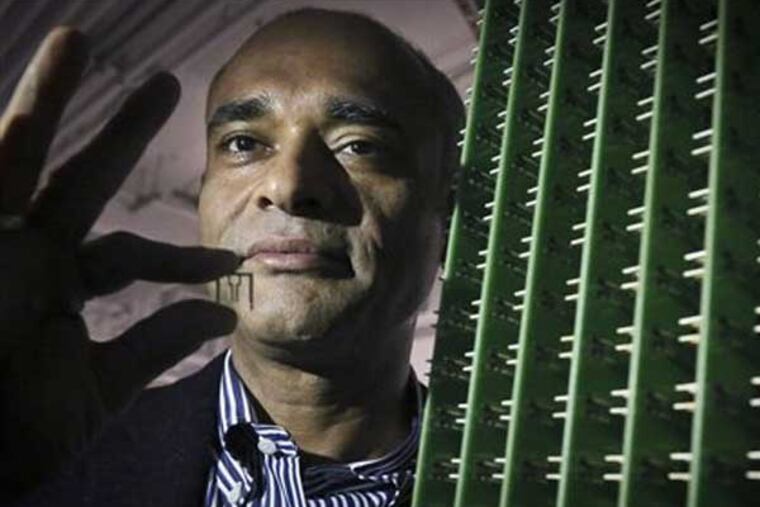Shaking Up Pay TV
NEW YORK - The Barry Diller-backed Internet company that challenged cable and satellite TV services by offering inexpensive live television online plans to expand this spring beyond New York City.

NEW YORK - The Barry Diller-backed Internet company that challenged cable and satellite TV services by offering inexpensive live television online plans to expand this spring beyond New York City.
After a federal court ruling that tentatively endorsed its legality, Aereo will bring its $8-a-month service to Philadelphia, Boston, Chicago, Washington, and 18 other markets in the United States, as well as to New York's suburbs.
For the last year, the service had been limited to New York City residents as the company fine-tuned its technology and awaited guidance on whether its unlicensed use of free, over-the-air broadcasts amounted to a copyright violation.
A federal judge in New York ruled in July that the service didn't appear to violate copyright law because individual subscribers were assigned their own tiny antenna at Aereo's Brooklyn data center, making it analogous to the free signal a consumer would get with a regular antenna at home. Aereo spent the subsequent months selecting markets for expansion and renting space for new equipment in those cities.
"The court decision was the green light in our perspective," CEO and founder Chet Kanojia said in a recent interview at Aereo's sparse offices in a former engine factory in Queens. "This is an opportunity of a lifetime to build up something meaningful to change how people access TV."
If the ruling stands, Aereo could pose a threat to Comcast Corp., of Philadelphia, and other pay-TV operators if consumers combine it with an online video-streaming service. Consumers could purchase Aereo and a video service such as Netflix or Amazon's Prime below the cost of traditional pay-TV services, which is about $80 a month.
Aereo also may hinder broadcasters' ability to sell ads, because it's not yet clear how traditional audience measures will incorporate Aereo's viewership. In addition, it could reduce the licensing fees broadcasters collect from cable and satellite companies.
Broadcasters have appealed the July ruling. At a November hearing, appellate judges expressed skepticism about the legality of Aereo's operations. In addition, the original judge's ruling was preliminary, made as part of a decision to let Aereo continue operating while the lawsuits wended their way through court. Even if courts continue to side with Aereo on the legality of its setup, broadcasters still could nitpick on the details and try to argue that the antennas don't actually operate individually as claimed.
Despite Aereo's initial win, copyright lawyer Kevin Goldberg with the firm Fletcher, Heald & Hildreth rated the company's chances "a toss-up. You really are trying to break new ground here."